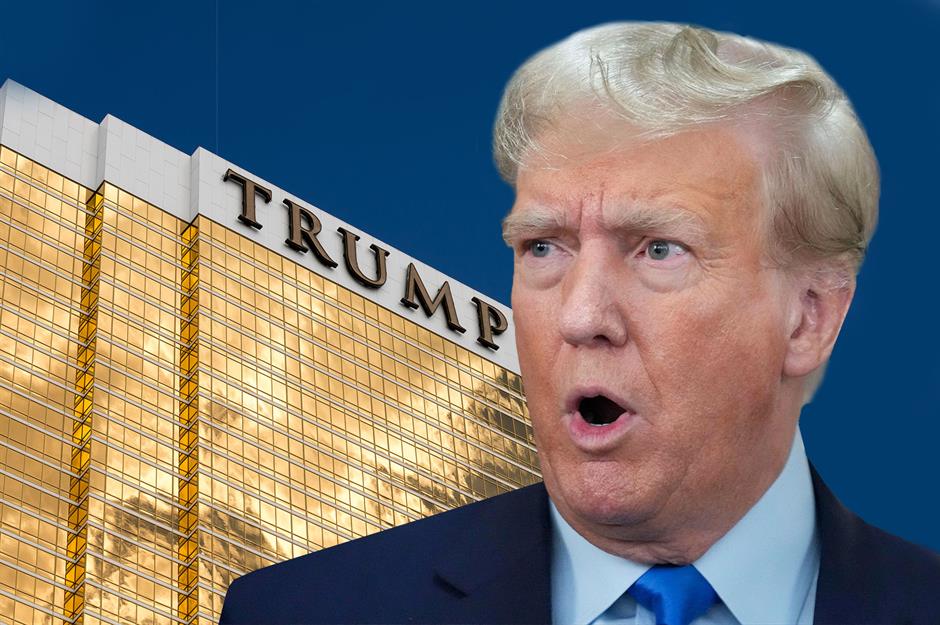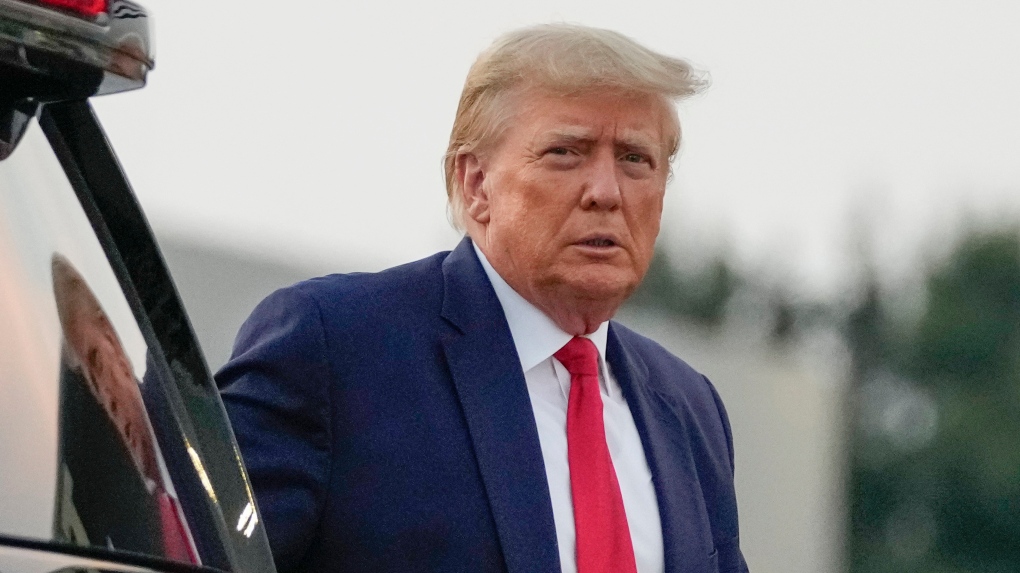## Introduction
Two decades ago, Donald Trump burst onto the American public stage with a tale of triumph and redemption. He presented himself as a successful real estate mogul, a man who had overcome billions of dollars in debt and emerged victorious. Fast forward to the present day, and Trump’s real estate empire is facing peril. A New York fraud trial has exposed the inner workings of his company, with a judge already ruling that Trump committed fraud. The trial could result in the loss of Trump’s New York licenses and a hefty fine that may force the company to sell off its properties. In this article, we will explore the twists and turns of Trump’s real estate journey, from his rise to fame to the potential downfall of his empire.
The Rise of Trump
Donald Trump’s introduction to the American public came in the form of his reality TV show, The Apprentice, which premiered in January 2004. The show presented Trump as a successful real estate mogul with towering skyscrapers and vast golf courses. It portrayed him as a man who had fought back from the brink of financial ruin and emerged victorious. Trump’s ability to broker a good deal and his larger-than-life persona made him a celebrity, and ultimately led him to the White House.

The Perilous Trial
Fast forward twenty years, and Trump’s real estate empire is facing its biggest challenge yet. The New York fraud trial has brought the inner workings of his company into the spotlight. Prosecutors have accused Trump of purposely exaggerating his net worth on government documents, and a judge has already ruled that he committed fraud. The trial could result in the loss of Trump’s New York licenses, severely impacting his ability to run his real estate business. Furthermore, the company may face a substantial fine, potentially forcing them to sell off their properties.
The Defense’s Arguments
Over the course of the trial, Trump and his defense team have worked tirelessly to defend his reputation and uphold the image he has cultivated for the past four decades. They have sought to shift the blame onto Mazars USA, the Trump Organization’s former accounting firm, arguing that any inaccuracies on government documents were the firm’s responsibility. However, the judge noted that Mazars had disclaimers placing the onus for accuracy on Trump and his company.
The defense team also tried to argue the merit of the “worthless clause,” a disclaimer on financial documents that Trump claims signals to lenders that the estimations on the documents are “worthless.” However, the judge deemed this argument moot, stating that the clause does not rise to the level of an enforceable disclaimer.
Evasiveness on the Stand
One factor that did not work in Trump’s favor during the trial was the seeming evasiveness displayed by him and other Trump Organization executives when faced with documents implying they were aware of inflated valuations. The judge will have leeway in interpreting this evasiveness, and it may impact the final judgment. Appeals are possible, but overturning factual determinations, particularly regarding witness credibility, can be challenging.
Trump’s Fantasy World
One crucial point made by the judge in his pre-trial ruling was that Trump’s defense relied on “bogus arguments” and a “fantasy world.” Trump and his team argued that he had the right to determine the value of his properties, even dismissing the role of legal restrictions in valuations. However, the judge rebutted these arguments, stating that real estate valuation is not exempt from laws and restrictions.
Appealing to the Audience
Throughout the trial, Trump and his defense team seemed more interested in appealing to the court of public opinion than seeking vindication from the court. Trump took on a strategy of provocation, blasting the judge and the New York attorney general on social media and denouncing the trial as a “witch-hunt.” He seemed uninterested in convincing the judge of his innocence and more focused on rallying his supporters for the 2024 election.

The High Stakes
The outcome of this trial could have significant consequences for Trump and his real estate empire. Losing his New York licenses would severely curtail his ability to conduct business in the state. Additionally, a substantial fine could force the company to sell off its properties. The potential fallout from this trial goes beyond the immediate financial implications, as Trump also faces the possibility of future criminal cases that could result in prison time.
Conclusion
Donald Trump’s real estate empire, once a symbol of success and power, now faces a precarious future. The New York fraud trial has exposed the inner workings of his company and raised serious questions about the accuracy of his financial documents. While Trump’s defense team has put up a strong fight, the judge’s ruling and the potential consequences loom large. The story that propelled Trump to fame and fortune may ultimately contribute to the downfall of his empire. As the trial draws to a close, the final judgment will have far-reaching implications for Trump and the future of his real estate business.
